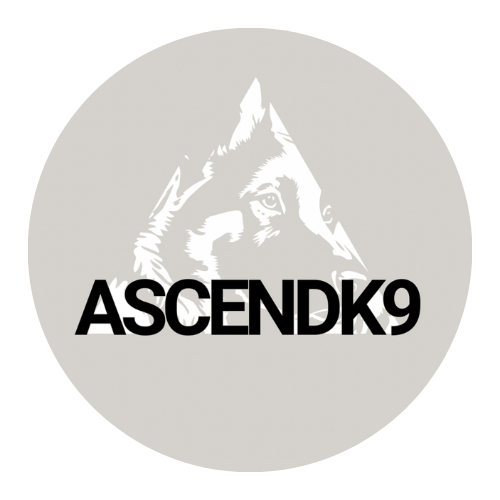Let’s Talk About You: Why Your Mental Health Matters in Dog Training
Let’s be honest, training a dog can feel like a rollercoaster.
One minute things are going great, and the next you're wondering if you're totally messing it all up. We spend so much time focused on our dogs, making sure they’re socialised, obedient, and happy that we often forget to check in on ourselves. But here’s the thing: how you feel matters just as much as what your dog is learning.
Whether you're working on reactivity, starting puppy training, or just trying to enjoy calm group dog walks, your emotional wellbeing plays a huge role in your dog's behaviour and progress.
Over 70% of dog owners report feeling anxious or overwhelmed during the training process. You’re not alone, and you don’t have to figure it all out solo.
Why Dogs Are Amazing for Mental Health - But It’s Not Always That Simple
We often hear that dogs are great for mental health, and they absolutely can be. They get us outside, help us feel less alone, and give us a sense of purpose. But when you're facing training struggles, especially with reactivity or behavioural issues, the emotional toll can feel heavier than the benefits.
Increased anxiety, feelings of failure, and the pressure to “get it right” can pile on quickly. And if you’re dealing with this in isolation - without a solid support system or a trainer who understands your emotional state - it can lead to resentment, burnout, and sometimes even a breakdown in your bond with your dog.
Common Struggles Dog Owners Face That Affect Mental Health
Many owners experience waves of self-doubt and frustration during their dog training journey. It might be guilt over raising your voice, embarrassment over a reactive outburst on a group walk, or overwhelm from the endless “advice” online. You might feel stuck when progress is slow, or anxious that you’re failing your dog altogether. These feelings are more common than you think and they can build up if you don’t have the right outlet, support system, or someone reminding you that it’s okay to struggle. Training a dog isn't about perfection… it's about progress, patience, and perspective.
1 in 3 owners admit they’ve cried during a difficult training week. It's okay to feel it and it’s okay to ask for help.
The Mental Health Cost of “Doing It Alone”
Too often, dog owners think they have to figure it all out on their own. Maybe it’s pride, maybe it’s shame, maybe it’s a belief that asking for help means you’re not a “good” dog owner. But in truth, it takes courage to reach out.
When you isolate yourself, especially while trying to handle a reactive dog or a high-energy puppy, stress builds fast. It becomes harder to enjoy the little wins, harder to be consistent, and harder to connect with your dog.
Without the right support system, a knowledgeable dog trainer who understands mental health, or a community of like-minded owners - you risk getting stuck in cycles of frustration, guilt, and avoidance.
"What if I’m not coping, but I don’t want to admit it?"
You’re not alone. Many owners feel like they “should” be able to manage, especially when it looks like everyone else has it figured out (spoiler: they don’t). Admitting that you’re not coping isn’t weakness… it’s self-awareness.
And it’s the first step toward creating real, sustainable progress with your dog.
We regularly hear from clients who say, “I wish I’d asked for help sooner.” So if you’re reading this and thinking this is me, please know there’s a better way, and support is available.
Dog training isn't just about behaviour, it's about building a relationship. A healthy relationship starts with a healthy you.
But I'm Just Tired. What Can I Do?
Training takes time, energy, and emotional investment. So how do you prevent burnout and stay grounded while supporting your dog?
Mental Health Tips for Dog Owners to Try
Set realistic expectations - Progress isn’t linear. Some days will feel like setbacks. That’s okay.
Schedule rest days - Your dog doesn’t need to train every single day. Neither do you.
Celebrate the small wins - Noticing your dog looking at you instead of reacting? That’s progress.
Limit comparison - Your journey is your own. Social media can be misleading.
Talk to your trainer - A good dog trainer isn’t just there for the dog. They’re there for you too.
A Quick Reflection for You
Take a moment to ask yourself: How do I feel before and after training sessions with my dog?
If the answer is often frustrated, drained, or defeated then that’s a sign to slow down, reassess, and reach out for support.
You’re not alone on this journey. Reach out for support when you need it - it’s the best step you can take for you and your dog.
You Deserve Support Too
Dog training is a journey, and like any journey, it comes with ups, downs, and the occasional muddy detour. But you don’t have to walk it alone. At ASCENDK9, we support both ends of the lead, because your wellbeing is just as important as your dog’s progress!
If you're feeling stuck, tired, or unsure how to move forward, we're here to help.
Reach out today and let’s take the next step together - with empathy, clarity, and connection.





